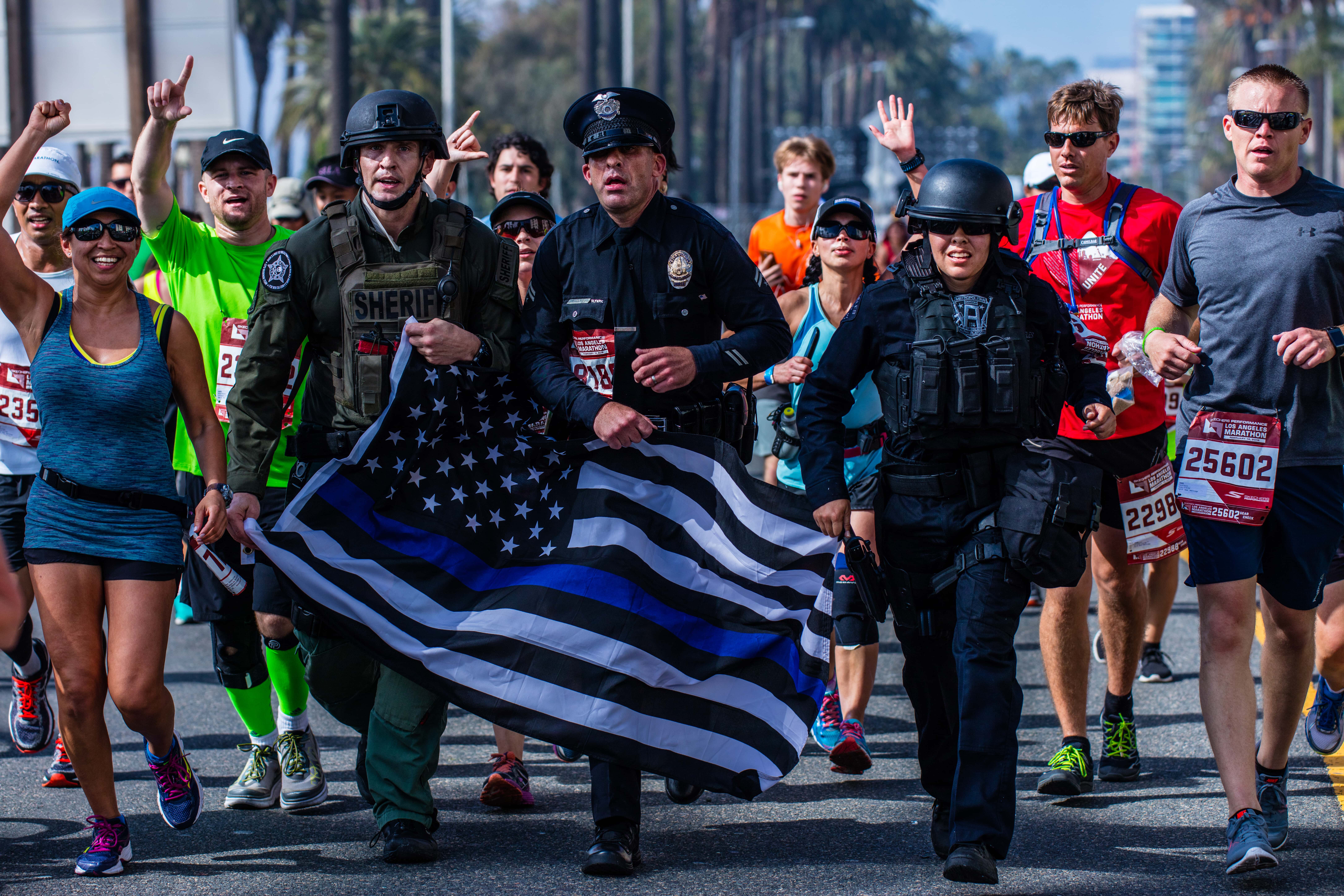The New Year begins with a disturbing report from the National Law Enforcement Officers Memorial Fund. The nonprofit organization that tracks police deaths reported preliminary information last week showing a 37 percent increase in line-of-duty deaths over the number of officers killed in 2009. Within 48 hours of the report’s release, two more officers were killed, raising the total line-of-duty deaths for 2010 to 162. The news is particularly perplexing and troubling because the data runs counter to local and national trends that have violent crime falling to levels not seen in a generation.
Traffic fatalities were the leading cause, with 73 officer deaths, while firearm fatalities jumped 20 percent from 49 deaths last year to 59 in 2010. Most alarming were the incidents in which multiple officers were gunned down. These so-called ‘cluster killings’ accounted for nearly 20 percent of all fatal shootings.
A variety of explanations have been offered for the rise in deaths, from budget cuts that have fewer police working longer hours to more distracted and dangerous drivers. Memorial Fund Chairman Craig Floyd points to the existence of criminals who don't think twice – or are even eager – to kill an officer of the law. Weak penalties may also be a factor: an Atlanta man accused of gunning down a Georgia state trooper December 27 had just been released from jail two weeks earlier, and jail records show it was not the first time he had tried to flee from police.
Dale Mann, director of the Georgia Public Safety Training Center, told the Atlanta Journal-Constitution that the law enforcement community is frustrated with weak punishments for serious crimes and the fact that cop killers rarely get the death penalty. "But by the grace of God, it could've been me and a hundred others," Mann said. "People are shooting police officers like it's nothing. One of the reasons is because they're not getting the death penalty for doing it. If they do, it'll be 30 years [before execution] and you'll have to remind the public what it's about."
Mann has a very valid point. If you share his frustration, consider speaking out at the victim impact hearing for cop killer Michael Alston (NYSID#0:3 521538N, DIN#: 93A0704) to be held on Friday, January 7, 2011, in New York. NYPD Sergeant Keith Richard Levine was off duty, driving through Manhattan on his way home, when he saw an armed robbery happening at an ATM machine. Three individuals were robbing one man when Sgt. Levine sprung into action, stopping his car and giving chase on foot.
In a recent letter to PoliceOne.com, Sgt. Levine’s father, Mike Levine – a retired 30-year veteran of law enforcement – wrote, “During [the] chase and gunfight, Keith was killed by a man named Michael Alston. Alston, at the time he killed Keith, was on the street again after having been twice convicted of homicide in New York City. Killing my son I think now officially qualifies him as a serial killer, and we can't even estimate how many homicides he's gotten away with.”
Incredibly, the New York Parole Board has decided that Alston should be set free – free to kill again. With his possible release looming, the law enforcement community across our nation needs to come together and let our feelings be known. You can send a letter of opposition to the release of Alston via the New York State Board of Parole’s website.
We’ve blocked the release of cop killers before, and we can do it again. Through our individual actions, we can achieve a collective result that clearly serves the best interests of the family and fellow officers of Sgt. Levine, as well as the law enforcement profession and our society.











